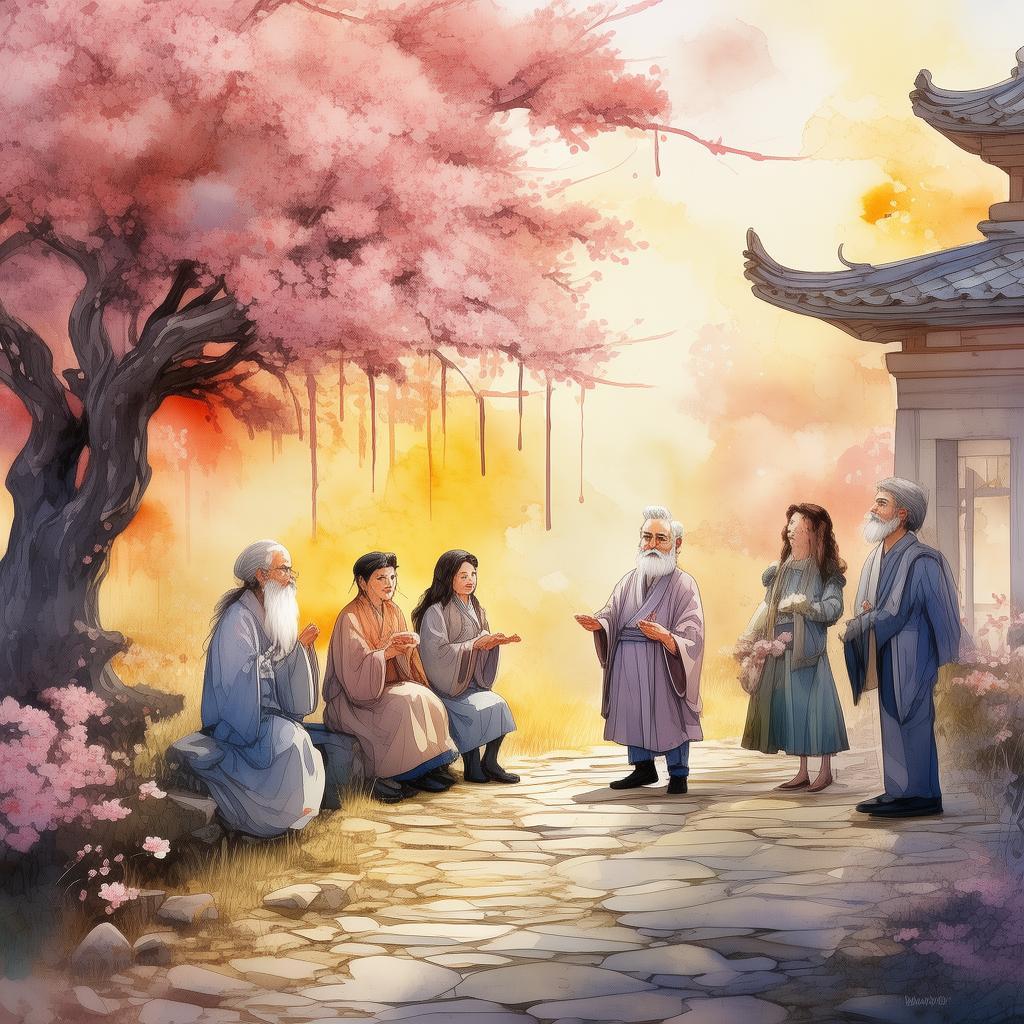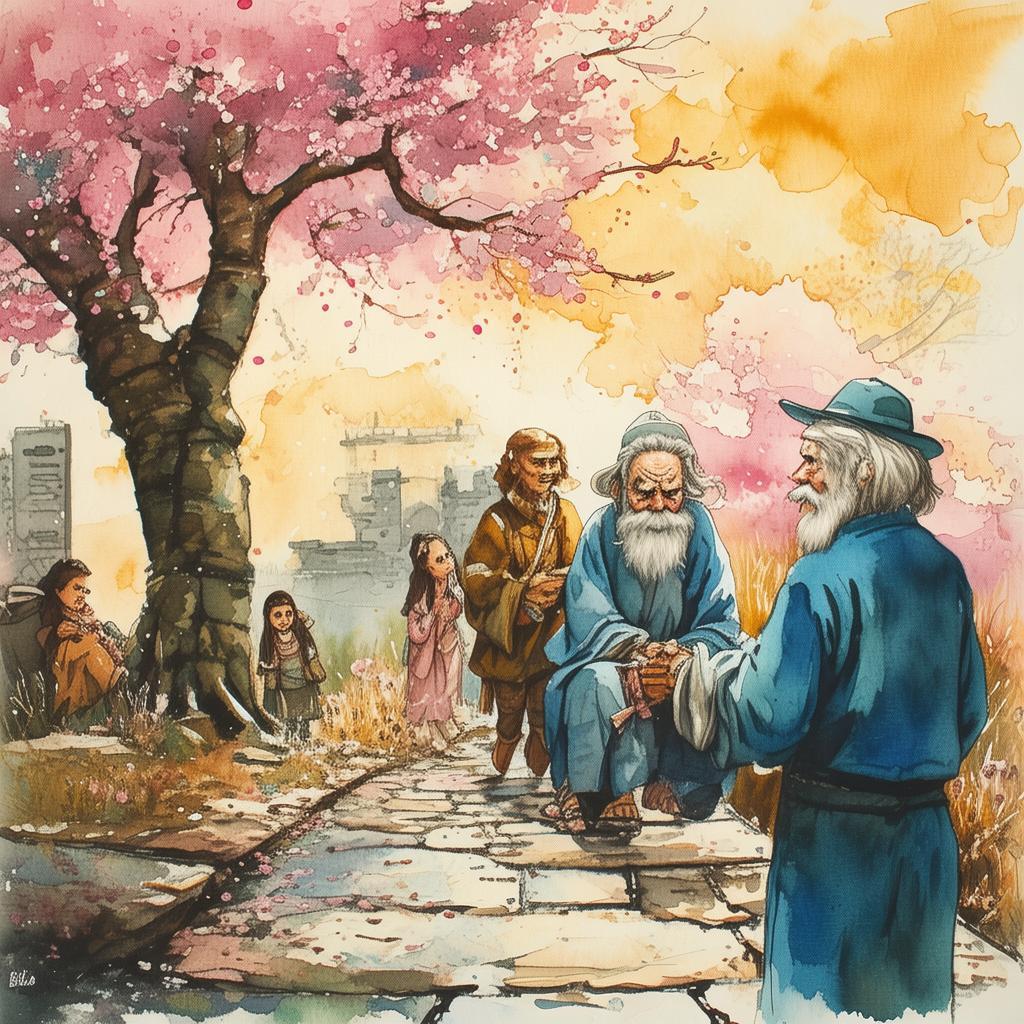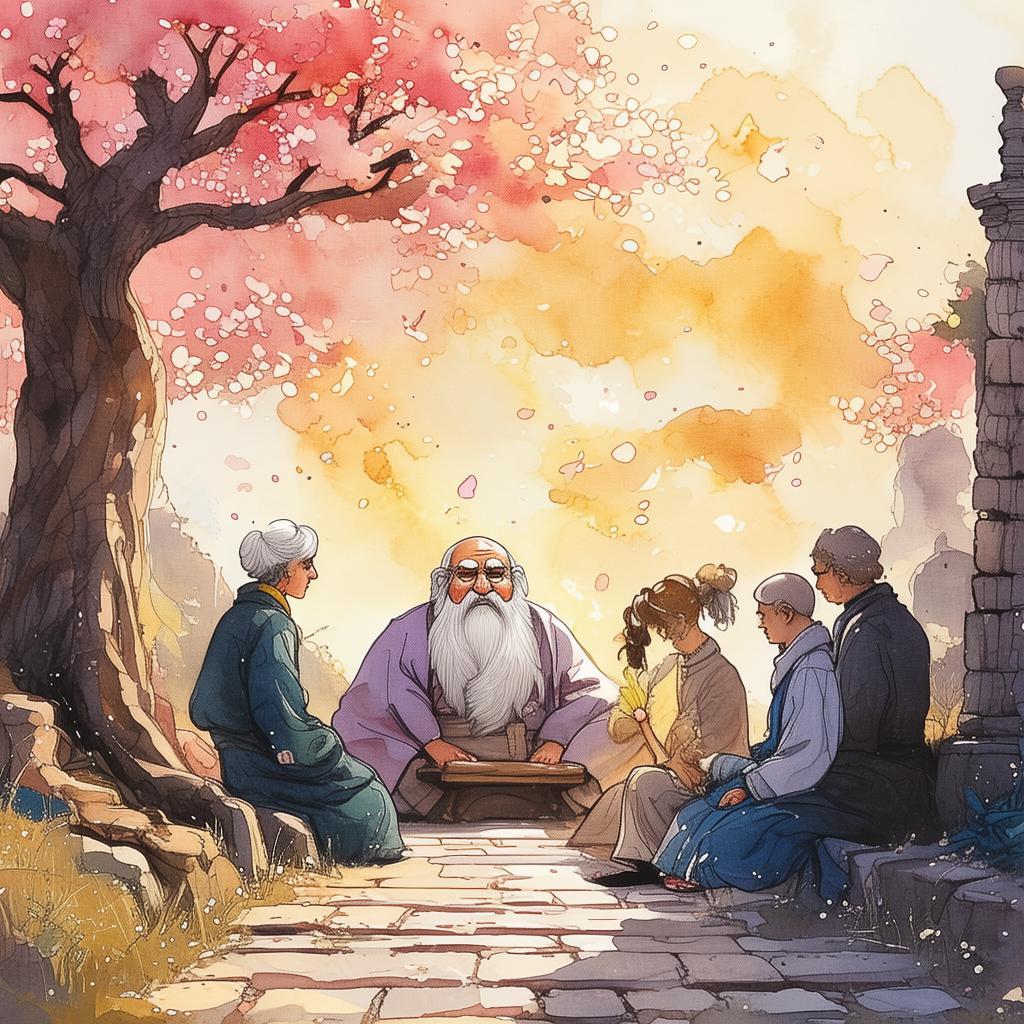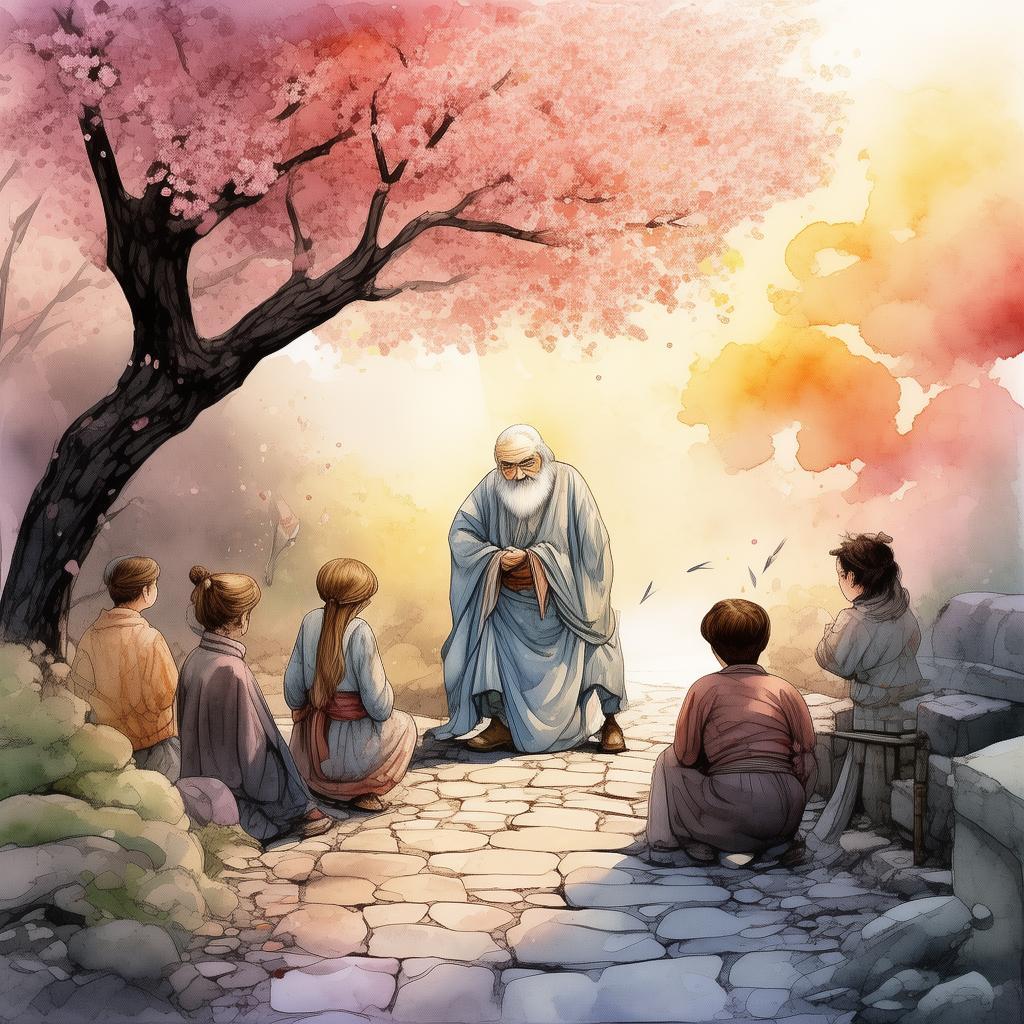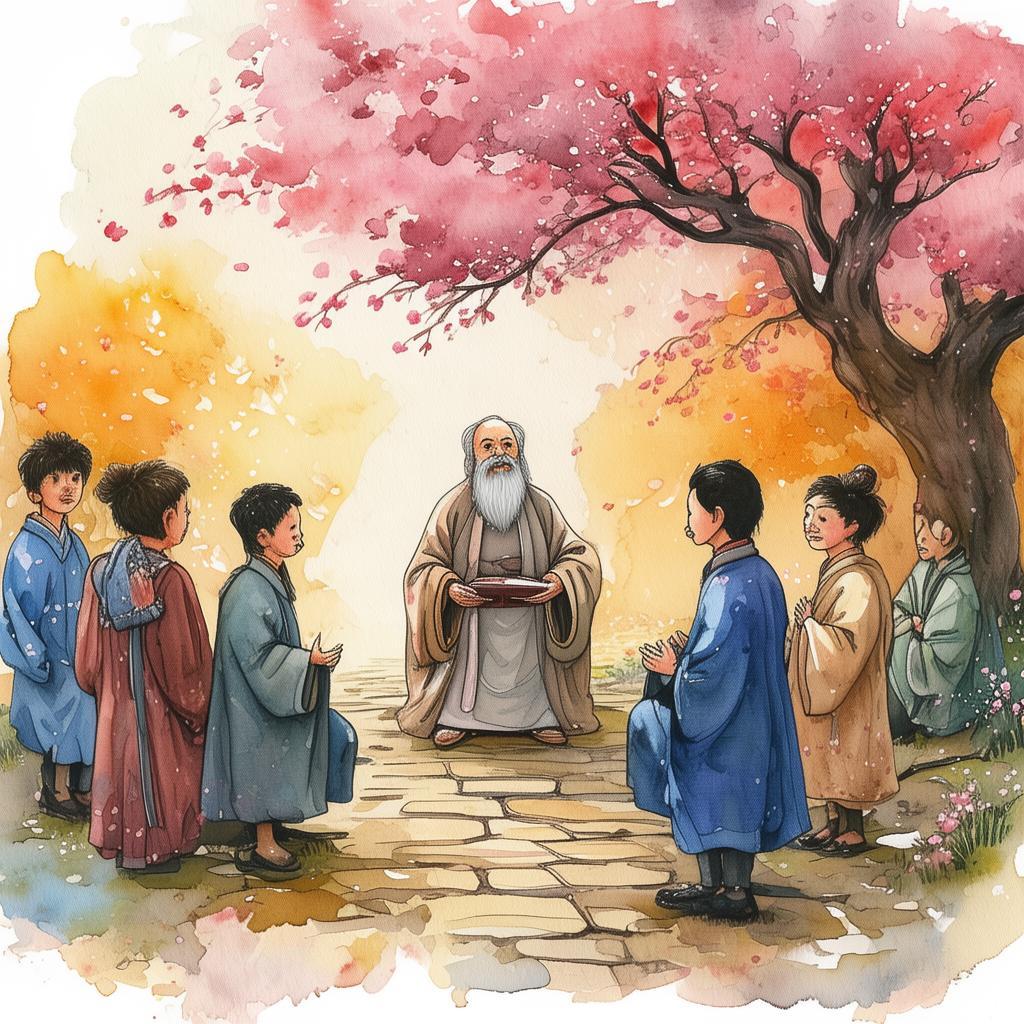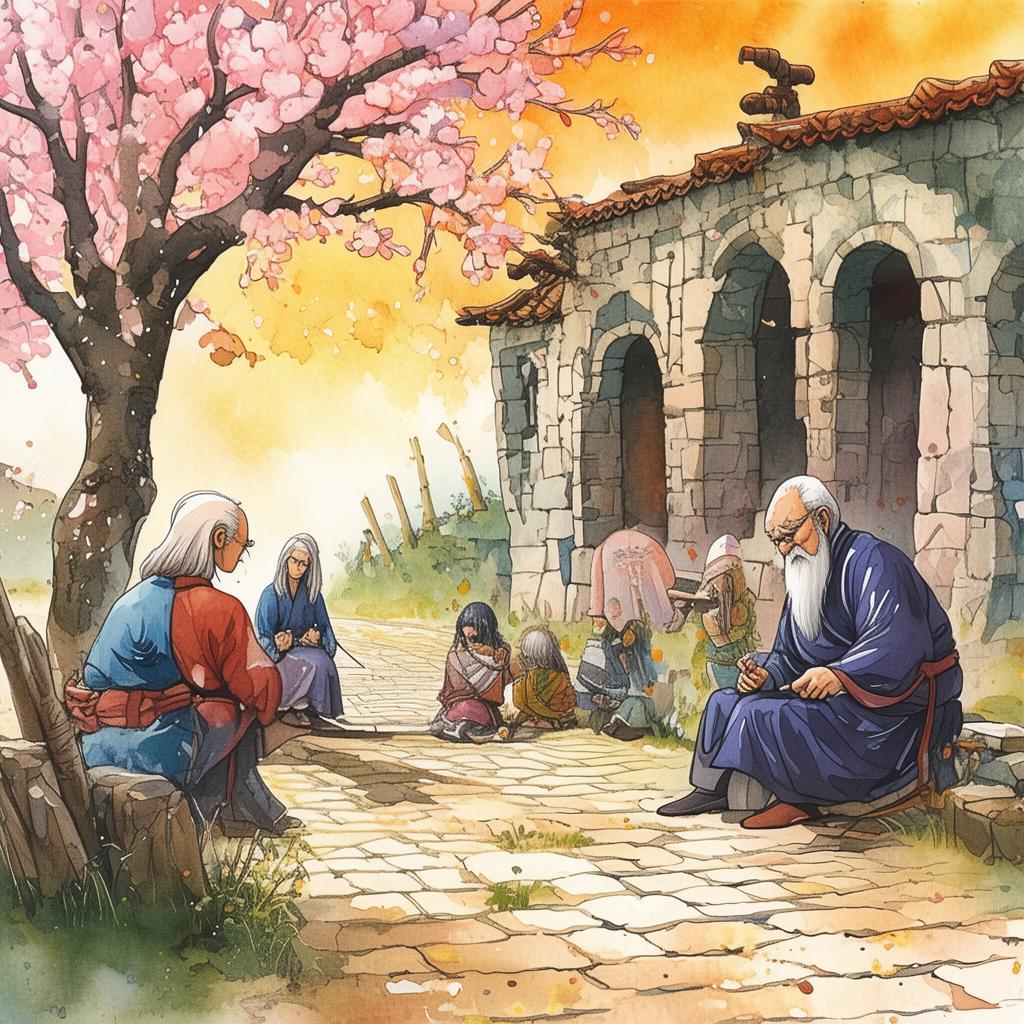The Rise of the Backward Ruler: A Throne Turned Upside Down
In the ancient kingdom of Lingxia, there reigned a young king named Ming. His reign was marked by a peculiar trait: he was backward in the eyes of his subjects. Ming had a peculiar way of thinking that seemed illogical and unkingly to his advisors and courtiers. They whispered among themselves, “The throne has turned upside down,” for Ming was more interested in the ways of the common folk than in the trappings of power.
Ming often spent his days among the people, learning their language, understanding their struggles, and helping them with their daily chores. His advisors, however, were appalled. They believed that a true king should rule from his throne, not mingle with the peasantry.
One day, a great calamity struck the kingdom. A terrible drought had befallen the land, and the crops failed. The people were desperate, and the kingdom was on the brink of starvation. The advisors gathered before Ming, their faces filled with worry and fear.
“Your Majesty,” the oldest advisor, Minister Li, said with a trembling voice, “we must act swiftly to save the kingdom. The people need your leadership.”
Ming listened to them, but his mind was elsewhere. He remembered the stories his grandmother had told him about the ancient ways of the kingdom, the wisdom of the old sages, and the power of nature. He decided to consult the wise old man who lived at the edge of the kingdom, known for his profound understanding of the natural world.
The journey to the wise man’s hermitage was long and arduous, but Ming persevered. When he finally reached the wise man, he found him sitting under a tree, surrounded by ancient scrolls and books.
“Welcome, young king,” the wise man said, his eyes twinkling with curiosity. “What brings you to my humble abode?”
Ming explained the situation with the drought and sought the wise man’s counsel. The wise man listened intently, then spoke with a voice that seemed to resonate with the very essence of the earth.

“The drought is a sign of imbalance,” the wise man said. “You must seek the balance within your kingdom, between the people and the land, between wisdom and power.”
Ming returned to the capital with a newfound sense of purpose. He began to implement changes in the kingdom, based on the wisdom he had gained from the wise man. He abolished unnecessary taxes, encouraged the planting of drought-resistant crops, and most importantly, he listened to the people.
The people, in turn, responded with gratitude and loyalty. They began to see Ming not as a backward ruler but as a king who understood their plight and was willing to do anything to help them.
As the kingdom began to recover, Ming’s advisors were astonished. The once-maligned king had turned the kingdom around with his unconventional methods. They realized that Ming’s backwardness was not a flaw but a unique strength, a wisdom that came from being close to the people and understanding their true needs.
The throne had indeed turned upside down, but in doing so, it had become a symbol of balance and harmony. Ming’s rule was marked by prosperity, peace, and the respect of all who lived within the kingdom’s borders.
Years passed, and Ming’s legacy lived on. The kingdom of Lingxia became a beacon of wisdom and justice, a place where the backward ruler had shown that true leadership was not about titles and power but about compassion, understanding, and the ability to listen to the heart of the people.
In the end, it was not Ming’s position on the throne that defined him, but his journey from backwardness to wisdom. And so, the kingdom of Lingxia flourished, and Ming’s story became a legend, a tale of how a throne turned upside down could rise to become a symbol of greatness.
✨ Original Statement ✨
All articles published on this website (including but not limited to text, images, videos, and other content) are original or authorized for reposting and are protected by relevant laws. Without the explicit written permission of this website, no individual or organization may copy, modify, repost, or use the content for commercial purposes.
If you need to quote or cooperate, please contact this site for authorization. We reserve the right to pursue legal responsibility for any unauthorized use.
Hereby declared.
